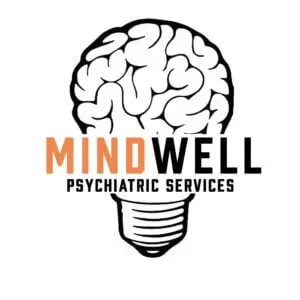Signs you need to go to a mental hospital can often be subtle. Mindwell Psychiatric Services aims to clarify these indicators. Many people struggle silently, unsure when professional help is needed. Therefore, recognizing these signs that you need to go to a mental hospital early is crucial for effective care.
Firstly, if you find daily tasks overwhelmingly difficult, it might be time to seek help. For instance, simple activities like showering or eating may become burdensome. So, this shift is a significant red flag. Also, intense emotional fluctuations are a common sign. That is to say, if you experience extreme mood swings from high to low within short periods, professional assessment might be necessary.
In addition, feelings of detachment from reality or persistent thoughts of self-harm should not be ignored. After that, such experiences signal that professional intervention could be beneficial. Above all, Mindwell Psychiatric Services is here to support you. Recognizing and responding to these signs that you need to go to a mental hospital promptly can lead to better health outcomes.
Understanding when to seek help is vital. The goal is to assist you in navigating these challenging experiences with compassionate care.
Understanding Mental Health Hospitals
If you’re noticing signs that you need to go to a mental hospital, it’s essential to understand what these places really do. Mental health hospitals are specialized facilities designed to help people who are going through tough times with their mental health. Consulting a psychiatrist in Las Vegas can provide valuable insights into the services offered by mental health hospitals and assist in determining the most suitable course of action.
What is a Mental Health Hospital?
A mental health hospital is a safe place focused on helping people heal and get better. It’s not like the scary places shown in movies. These hospitals are where skilled professionals support individuals dealing with serious mental health challenges through careful and compassionate care.
Mental health hospitals offer a controlled setting where patients can receive detailed mental health treatment. This care includes checking the patient’s health, talking through problems in therapy sessions, and managing medications. These hospitals are well-equipped to handle different kinds of mental health issues, offering more intensive care than what you might get at home or in regular psychiatrist visits.
What Mental Health Hospitals Are Not
Mental health hospitals are not places that make you feel isolated or more troubled. They are not the old-fashioned ‘asylums’ you might see in films. Instead, these are modern places that focus on treating everyone with respect and helping them recover.
Key Roles of Mental Health Hospitals
The main job of these hospitals is to provide quick help and stabilize people who are having a very hard time with their mental health. For example, someone might need to go to a mental hospital if they are dealing with severe depression, overwhelming anxiety, or other serious issues. The hospital helps prevent harm by managing these intense symptoms in a safe environment.
These hospitals also help patients move to ongoing care if needed. After helping stabilize someone, they often help set up the next steps, like moving to a treatment home or getting community-based care. This helps make sure the patient continues to get help after leaving the hospital.
Services Offered in Mental Health Hospitals
Mental health hospitals provide many types of help, including:
- Crisis Intervention: Quick help for severe mental health crisis.
- Comprehensive Assessment: In-depth checks to understand what the patient needs for their treatment.
- Medication Management: Medication prescription and management involves the careful control and adjustment of medicine to help treat mental illness.
- Therapeutic Programs: Both group and one-on-one therapies that help in recovery, such as cognitive-behavioral therapy (CBT).
- Support and Education: Information and resources for both patients and their families to help them understand mental health better and how to manage it.
Knowing what mental health hospitals are and what they are not is very important if you’re seeing signs you need to go to a mental hospital. These hospitals are crucial in providing immediate and effective care and support for those with severe mental health issues. Understanding the truth about these hospitals can help you feel more prepared and hopeful about seeking help.
Key Signs You Need to Go to a Mental Hospital
Understanding what signs suggest a need for mental health hospital care is vital. Therefore, it’s about knowing when it’s time to get help to feel better faster.
Feeling Overwhelmed by Emotions
If your emotions feel too strong and you struggle to handle everyday life, this could be a sign you need to go to a mental hospital. For instance, feeling too sad, angry, or scared all the time, and not finding joy in anything, are big red flags. So, when simple things like getting out of bed become hard, it’s time to seek help.
Persistent Thoughts of Harm
Thinking about harming yourself or others is a serious sign that you need immediate help. In a hospital, you can talk about these thoughts safely with professionals who know how to help. It’s also important to talk about these feelings as soon as they happen to prevent any harm and start getting better.
Inability to Perform Daily Tasks
For example, if you find daily tasks like cleaning, working, or taking care of yourself too hard, it might be time to think about going to a hospital. Therefore, this shows that your mental health is really affecting your ability to live normally. That is to say, hospitals offer a place where you can get back on track with professional help.
Severe Anxiety and Panic Attacks
When anxiety or panic attacks stop you from doing normal things and cause intense fear or physical signs like a fast heartbeat or sweating, hospital care might be needed. To clarify, hospitals can give you fast and effective treatments to help manage these intense feelings.
Understanding Bipolar Disorders
Bipolar disorder involves very high and very low moods. If these mood swings are extreme, a hospital can help manage them safely. Getting the right care for bipolar disorder is important for staying safe and healthy.
Admitting Yourself for Care
Choosing to go to a hospital can be a big step towards feeling better. It means getting the right care quickly, especially during tough times. Going to the hospital by choice is often the first step to getting the care that best meets your needs.
The Role of Mental Health Professionals
Mental health professionals are key in figuring out what’s wrong and how to treat it. They check your health, decide on the best treatments, and support you as you get better. They make sure everything they do is just right for you.
Involuntary Hospitalization
Sometimes, if someone doesn’t realize they need help, others might decide they need to be hospitalized. This is usually only done if there’s a serious risk to themselves or others and is seen as a last resort.
The Benefit of Couples Therapy
Couples therapy might help before things get too bad. That is to say, it can solve problems in relationships that might be making mental health worse. This type of therapy provides a place to work things out and can help improve mental well-being.
Knowing the signs you need to go to a mental hospital is crucial. Whether it’s overwhelming emotions, severe mood swings, or anxiety that stops you from living your life, these are signs you need to go to a mental hospital. Therefore, mental health hospitals offer safe places to handle these issues, helping you get back to everyday life with better mental health.
The Admission Process
Understanding how to get admitted to a mental health hospital is crucial if you see signs that you need to go. So, here’s a clear guide on what steps to take, aimed to ease the process and increase mental health awareness.
How to Get Admitted to a Mental Health Hospital
Admitting yourself or a loved one to a mental health facility can seem daunting. However, the steps are straightforward, designed to ensure that you receive the right care at the right time.
Recognizing the Need for Hospitalization
The first step is recognizing the signs you need to go to a mental hospital. For instance, this could be severe symptoms like postpartum depression, uncontrollable panic attacks, or other urgent mental health issues. Also, awareness is key, as early recognition leads to timely support.
Consult Your Primary Care Provider
Before admission, it’s usually necessary to consult with your primary care provider. To clarify, they can assess your situation and refer you to a mental health hospital if needed. They play a crucial role in starting your journey to recovery.
Understand the Admission Criteria
Mental health hospitals have specific criteria for admission to ensure that each patient receives appropriate care. For example, these often include the severity of symptoms and the potential risk to oneself or others. Also, understanding these criteria can help clarify whether hospitalization is the right step.
Prepare Necessary Documentation
Documentation may include medical history, a referral from your primary care provider, and any previous mental health records. That is to say, this paperwork is crucial as it helps the hospital provide the best care tailored to your needs.
Learn About the Costs and Price Transparency
Understanding the costs involved in hospitalization is also essential. Many hospitals now provide price transparency to help patients and their families plan financially. So, it’s advisable to inquire about costs, insurance coverage, and available financial aid programs.
The Admission Process
Here’s what the admission process generally looks like:
1. Initial Contact
Reach out to the hospital to express your need for admission. This can be done via a phone call or a visit to the emergency department if the situation is urgent.
2. Assessment
Upon arrival, a mental health professional will assess your condition through interviews and evaluations to confirm that hospitalization is suitable and necessary. This psychiatric evaluation and diagnosis process ensures that the appropriate level of care is provided based on your specific needs.
3. Intake Paperwork
If hospitalization is recommended, you’ll complete some paperwork to officially start the admission process.
4. Medical Examination
A comprehensive medical exam may be conducted to rule out any physical health issues and to understand your overall health status.
5. Setting Up the Care Plan
After admission, the team will create a personalized care plan tailored to address your specific mental health needs.
What to Expect During Your Stay
Understanding what to expect during your stay can reduce anxiety and help you prepare mentally and physically. To clarify, you will likely participate in various therapies, meet with different mental health professionals, and possibly join group sessions.
After Admission: The Role of Ongoing Support
After you are admitted, your care doesn’t stop at treatment. That is to say, most health facilities ensure you have a support system for after you leave, including follow-up appointments and connections to community resources.
Admission to a mental health hospital is a structured process aimed at providing immediate and appropriate care. Recognizing the signs you need to go to a mental hospital is the first critical step. Following through with these steps can lead to effective recovery and a better understanding of what mental health care involves. Knowing these steps ahead of time can make the process smoother and less intimidating, allowing you and your loved ones to focus on recovery.
What to Expect During Your Stay
If you’re noticing signs you need to go to a mental hospital, it’s normal to feel nervous about what comes next. This section will help you understand what a typical day looks like in a mental health hospital, the treatments you might receive, and the support you can expect.
Experiencing a Mental Health Hospital
When you stay at a mental health hospital, you’re entering a caring place aimed at helping you get better. Everything from the daily schedule to the treatment programs is designed to promote mental wellness, make you feel supported, and guide you toward recovery.
Daily Routine in the Hospital
A regular day at a mental health hospital is well-organized to give you a stable and supportive experience. It usually starts with a check-in with the medical team to see how you’re doing and if your medications need any adjustments. The rest of the day includes meals at regular times, therapy sessions, and other activities, all planned to help you get the most benefit from your stay.
Types of Treatment Available
- Inpatient Care: This means you stay in the hospital and get care day and night. The care team will help manage your medications, offer one-on-one therapy, and organize group therapy sessions to work through issues like anxiety, personality disorder or mood swings.
- Therapy Sessions: You might have sessions like cognitive-behavioral therapy, which helps you deal with negative thoughts, or other types of therapy depending on your needs.
- Specialized Programs: If you have specific issues, many hospitals offer specialized mental health programs for issues like problems with substance abuse or intense mood swings, the hospital might have special programs just for those.
- Recreational Therapy: Activities like art, music, or exercise are part of the day too. These help you feel better overall, mixing mental care with physical health.
Support Systems
The hospital team supports you in more ways than just medical treatment. They also provide:
- Emotional Support: Nurses and therapists are there to listen and help you through tough times, and meeting other patients dealing with similar issues can make you feel less alone.
- Family Involvement: Sometimes, your family can join sessions to learn about what you’re going through and how they can support you.
- Aftercare Planning: From the start, the staff will help you plan for what to do after you leave the hospital. This might include setting up further treatment or support groups to keep helping you once you’re home.
What a Typical Day Looks Like
- Morning: You’ll start with personal care, breakfast, and a chat about your medication. Then you might have group therapy or meet with your therapist.
- Afternoon: After lunch, you could have sessions focused on specific skills like handling stress or preventing relapse, and then some time to relax or take part in a chosen activity.
- Evening: Dinner is followed by some light activities or free time to wind down before the night.
Safety and Security
The hospital is a safe place where staff are always ready to help. They make sure everyone feels secure and can focus on getting better without extra worries.
Knowing what to expect can make the idea of going to a mental health hospital less daunting. The setup of the environment helps you face and overcome your mental health challenges with support all around you. Remember, the goal is to help you get back to feeling like yourself again, with all the care and resources you need to recover.
Life After Hospitalization
Life can be filled with hope and a bit of uncertainty after you leave a mental health hospital. So, recognizing the signs you need to go to a mental hospital is just the first step. Therefore, here’s how to navigate the journey of recovery and maintain your mental health after you return home.
Recovery and Support After Hospitalization
After your stay in a mental health hospital, continuing care is crucial to maintain the progress you’ve made. That is to say, this period involves transitioning back to everyday life with a strong support system and a solid plan for ongoing treatment.
Continuing Your Treatment Plan
Before you leave the hospital, you’ll work with your care team to develop a treatment plan tailored to your needs. Therefore, this plan might include:
- Medication Management: Continuing any medications prescribed in the hospital with regular check-ups.
- Outpatient Care: Regular appointments with mental health professionals to monitor and adjust your treatment as needed.
- Therapy Sessions: Ongoing therapy to provide continuous support and tools for managing mental health conditions.
Maintaining Mental Health
Keeping your mental health stable requires daily attention. So, here are some tips:
- Routine: Establish a daily routine that includes time for work, rest, and activities you enjoy.
- Healthy Habits: Eat well, get regular exercise, and ensure enough sleep to keep both your body and mind in good shape.
- Mindfulness and Relaxation: Techniques such as meditation, yoga, or deep-breathing exercises can help maintain calm and manage symptoms of anxiety and depression.
Finding Community Support
Connecting with others who have similar experiences can be incredibly supportive. Therefore, look for:
- Support Groups: Join groups where you can share experiences and coping strategies in a safe, supportive environment.
- Community Resources: Local community centers often offer programs or workshops that focus on mental health awareness and recovery.
- Online Forums: Online communities can also provide support and advice at any time, which is especially helpful if you’re unable to attend in-person meetings.
The Role of Family and Friends
Your loved ones play a critical role in your recovery by providing emotional support and understanding. Educate them about your condition and what kind of support you need. Family therapy can also be a part of your recovery, helping to improve communication and resolve any conflicts.
Managing Setbacks
Recovery from mental health conditions can be non-linear and include setbacks. So, knowing how to handle these is important:
- Anticipate and Plan: Recognize potential stressors and plan how to deal with them without becoming overwhelmed.
- Seek Help Early: If you notice signs of a relapse, contact your healthcare provider immediately. Early intervention can prevent more severe episodes.
- Be Open to Adjustments: Your treatment plan may need changes as you grow and your life changes. Regularly review and adjust it with your healthcare team.
Awareness and Education
Stay informed about your condition and treatment options. The more you know, the better you can manage your health. Participating in events like those organized by national mental health organizations, including the National Suicide Prevention programs, can also provide additional support and resources.
Life after a mental health hospital involves ongoing care and attention to your mental wellness. By following your treatment plan, maintaining healthy habits, and leveraging community support, you can continue to build a fulfilling, healthy life. Remember, recovery is a journey, and with the right tools and support, you can navigate it successfully. Keep an eye out for the signs you need to go to a mental hospital and take proactive steps to manage your mental health.
Conclusion
Recognizing the signs you need to go to a mental hospital is an important step towards taking care of your mental health. Mindwell Psychiatric Services understands that this decision can be challenging. Remember, seeking help is a sign of strength, not weakness. Mental health hospitals equip you with the support and treatment necessary for recovery. So, if you’re experiencing signs of mental distress, consider reaching out for help. After all, taking action is the first step towards regaining your well-being and moving forward in life.
FAQs
What are signs you need to go to a mental hospital?
Signs you need to go to a mental hospital include overwhelming emotions, persistent thoughts of harm, an inability to perform daily tasks, and severe anxiety or panic attacks.
What should I expect when I go to a mental hospital?
Expect a structured environment focused on recovery, including therapy sessions, medical evaluations, and supportive care from mental health professionals.
Can I voluntarily admit myself to a mental health hospital?
Yes, most admissions to mental health hospitals are voluntary. You have the right to seek help and admit yourself when you feel it’s necessary for your safety and health.
What is the typical day like in a mental health hospital?
A typical day includes structured activities like therapy sessions, group meetings, meals, and time for personal care, all aimed at supporting your recovery.
How long do people usually stay in a mental health hospital?
The length of stay varies depending on individual needs but can range from a few days to several weeks, based on the severity of the condition and the progress made during treatment.
What kinds of treatments are available in a mental health hospital?
Treatments include psychiatric evaluations, medication management, individual therapy, group therapy, and sometimes specialized programs for specific conditions like substance abuse or severe depression.
How can I continue to support my mental health after leaving the hospital?
Continue with outpatient care, attend therapy as recommended, maintain a healthy routine, and utilize support groups to sustain mental health improvements.
Are family members allowed to visit or be involved in the treatment process?
Family involvement is often encouraged, with visitation times available and family therapy sessions to help relatives understand the condition and how to support the patient.
What are common misconceptions about mental health hospitalization?
Common myths include the belief that mental health hospitals are like prisons, or that all patients are held involuntarily, both of which are untrue.
Where can I find support if I'm not sure about hospitalization?
Consider speaking with a mental health professional, joining a support group, or consulting organizations like the National Suicide Prevention Lifeline for guidance and information.





